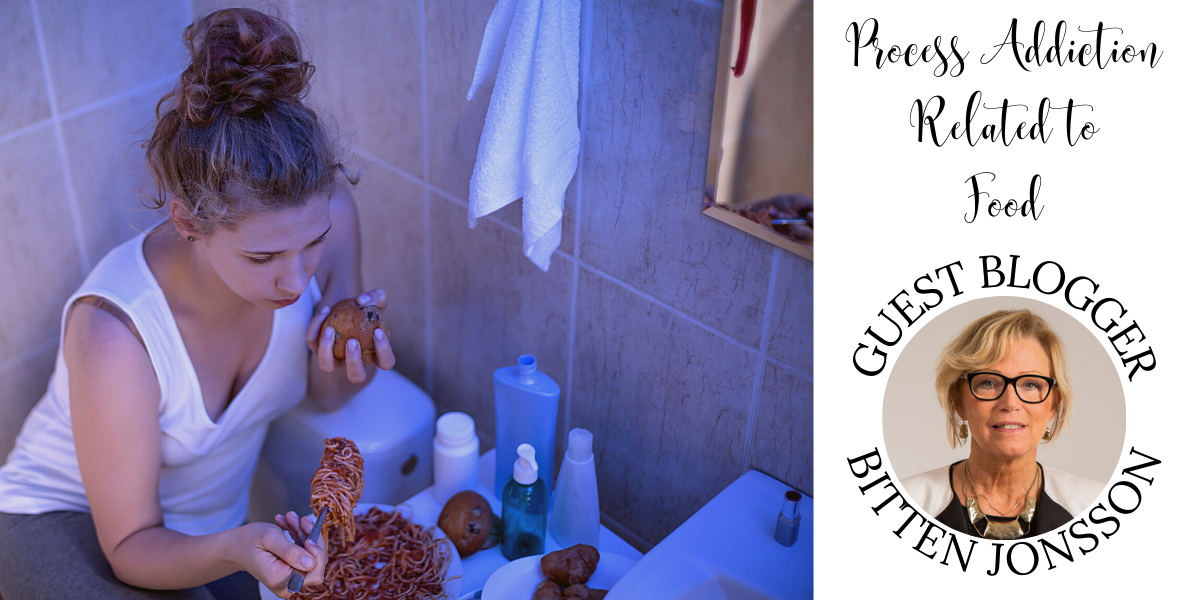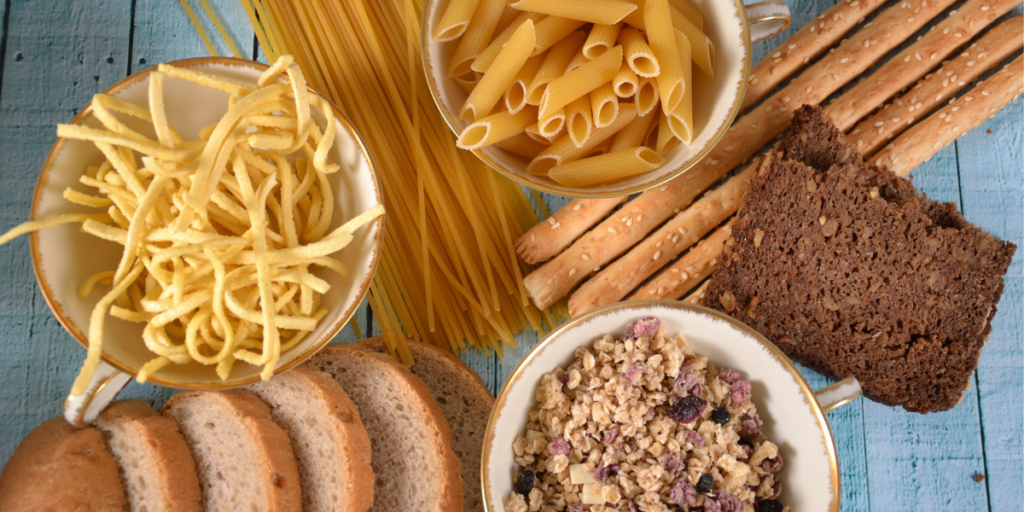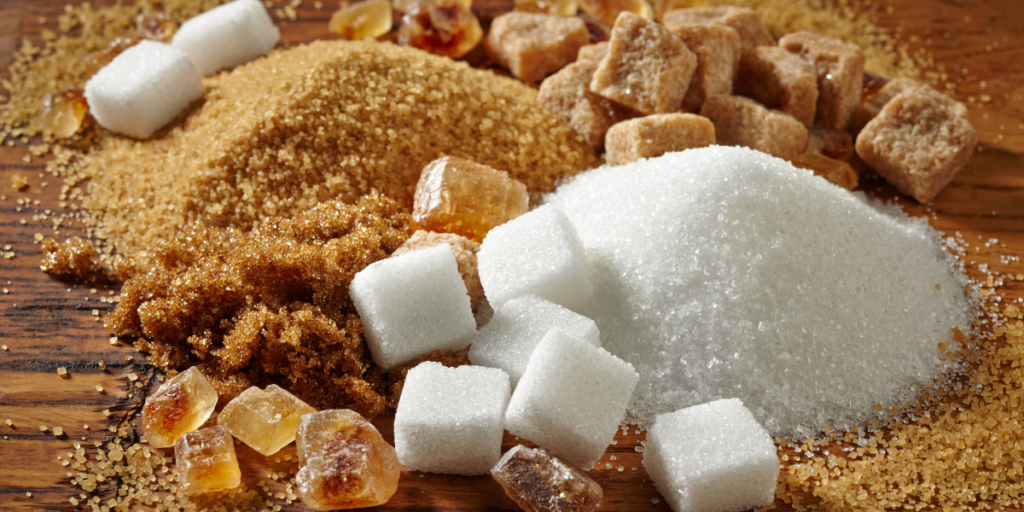
Process Addictions Related To Food
- awentworth
- August 15, 2022
- Food Addiction Guest Blogger
Although most sugar addicts are overweight to some degree, it’s important to remember that many are of normal weight – and some can even be underweight. Sugar addiction isn’t about weight, it’s about brain illness. Dependence on food substances comes first, and that dependence may lead to one or more process addictions.
Some food addicts fixate primarily on sugary products, such as chocolate, ice cream and candy.

Others are more obsessed with flour-based products, such as bread, pizza, crackers and pasta (those hooked on flour-based foods are the largest group).

The flour/bread group is most difficult to treat – perhaps because their intestines are so damaged by long-term gluten exposure. Gluten is abrasive to the villi of our intestinal lining that are essential for gut health.
Flour-focused addicts seem to be more “foggy brained” than sugar-focused addicts. They have more relapses, and are more adversely affected by food addiction overall. They tend to become sicker from their relapses and have more difficulty recovering from relapse. The omnipresence of bread as a staple in the diets of most cultures contributes to this difficulty, creating a sense that bread is somehow essential. The flour-focused group is also quite prone to seeking “substitutions” which will create a similar affect.
Sugar and starch trigger dopamine release, and gluten also releases opioid-like compounds that function as “false endorphins,” leading to a long and unpleasant detoxification.
Dairy addicts react in a similar way to the opioid-like compounds generated by milk proteins, which likewise act as “fake endorphins.” Each person’s biochemical makeup determines the degree to which they’re sensitive to these substances.
Eating can be a way to reinforce other addition outlets, and/or it can be used to self-treat hangovers from alcohol and drugs. In my experience, however, sugar / flour and dairy always come first, before other outlets. Sugar paves the way.
Addiction Interaction Disorder (AID) is described as “one illness with multiple outlets.” Skills and understanding are needed to successfully identify and treat AID, and unfortunately, too few have those skills. Sweden’s treatment community advocates for treating “one drug at a time,” usually starting with alcohol or a drug other than food. I disagree with that approach because when someone is sober/drug free but continues using sugar, it often happens that she/he uses sugar as a substitute outlet.

Continued use of sugar interferes with the re-wiring of brain biochemistry that’s necessary for recovery, which significantly increases the risk of recurrence/relapse into alcohol/drug use. Unfortunately, too few therapists can provide the biochemical repair treatment that would prevent most relapses and provide a more stable recovery. Many who work in social services have limited knowledge about addiction and often know nothing whatsoever about the damage to an addict’s brain biochemistry that’s typically acquired during active substance use. More education and advanced research are badly needed.
Process addictions (illness “rituals”) are common for all addictions. These strategies work only temporarily, giving addicts the illusion of being able to fix the problem themselves.
These are some of the many ways that sugar / flour / addicts try to manage/control their illness and cravings:
- Volume addiction: eating large quantities of food to numb the loss of trigger foods
- Vomiting after overeating (bulimia)
- Self-starving (getting an affect or “high” from anorexic behaviors)
- Fasting for various periods of time
- Excessive detox and bowel cleansing programs using pills powders, enemas, smoothies, etc.
- Fashion dieting: continually jumping from one popular diet to another
- Alternating binge eating with periods of fasting
- Eating very quickly
- Exercising obsessively
- Feeding others: living vicariously by making sure others eat a lot while refraining from it themselves
- Partying: festive eating
- Eating to counteract low energy and fatigue
- Eating in special ways to achieve fitness
- Emotional eating in response to feelings caused by the drug - a vicious circle
- Grazing: snacking all the time
- Chewing food and spitting it out without swallowing
These are desperate attempts to control an illness that cannot be controlled – only treated.
I can assure you, attempts to control don’t work. As a recovering alcoholic myself, I see and hear this same thing with alcohol (and other drugs) all the time. Trying to control a food addiction leads to bingeing. I believe it’s important to have a strategy and routine for each meal, such as weighing, measuring, and speaking with someone before and after eating. Clients should be encouraged to avoid spending any more time in the kitchen or around food than is absolutely necessary. Encourage them to chew very slowly and put their knife and fork down between bites.
Meet Bitten
Bitten Jonsson, RN, is a US-trained expert on food addiction, who specializes in helping people to break free of unhealthy attachments to foods, such as sugar and processed carbohydrates.
She has been on the Board of Directors for the Food Addiction Institute located in Florida since 2010.
Bitten has decades of experience treating patients with food addiction and has developed a holistic treatment program for food addicts in which she offers education for professionals, both in Sweden and online.
She has also developed a self-diagnosis test, which helps clients learn if they’re suffering from harmful use or addiction. It is important to know the difference since the treatment for each condition differs.
Bitten follows guidelines in addiction medicine from the American Society of Addiction Medicine (ASAM) and is trained in Addiction Interaction Disorder, oftentimes described as “one illness, many outlets.”
Most of Bitten’s training was completed alongside Terence T. Gorski at CENAPS in the US. She was also a member of National Association of Addiction Treatment Providers (NAATP) and The Association for Addiction Professionals (NAADAC) for many years.
Additionally, she has been certified and licensed in Alcohol and Drug Diagnose Instrument (ADDIS) since 1990, which is built on ICD 10 and DSM5 diagnostic criteria for addiction, as well as, SUGAR certified and licensed. SUGAR is an evaluation instrument she developed after the ADDIS model.
Bitten is a food addict in recovery since 1993, which is when she got help in the US after struggling with her own food addiction for many years. She is convinced that a keto food plan is the best option for those who suffer from food addiction — and more specifically, for those who are addicted to sugar.
Website: https://www.bittensaddiction.com/en/
IG: https://www.instagram.com/bittensaddiction/
If you feel you struggle with food/sugar addiction, let me help you break the control food has over you. Check out my food addiction programs.

